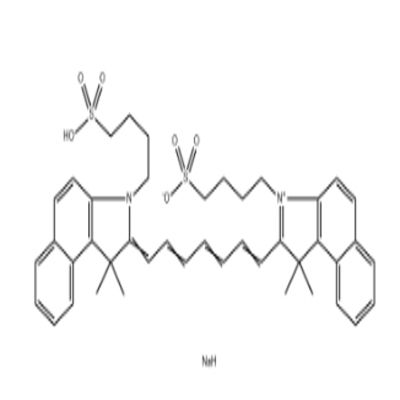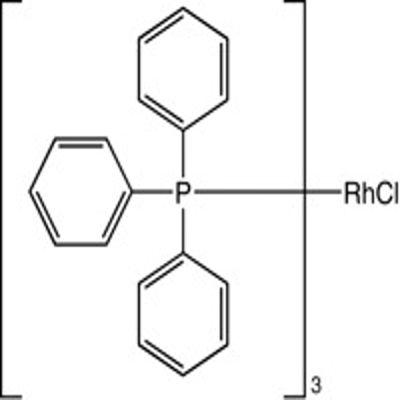-
Categories
-
Pharmaceutical Intermediates
-
Active Pharmaceutical Ingredients
-
Food Additives
- Industrial Coatings
- Agrochemicals
- Dyes and Pigments
- Surfactant
- Flavors and Fragrances
- Chemical Reagents
- Catalyst and Auxiliary
- Natural Products
- Inorganic Chemistry
-
Organic Chemistry
-
Biochemical Engineering
- Analytical Chemistry
- Cosmetic Ingredient
-
Pharmaceutical Intermediates
Promotion
ECHEMI Mall
Wholesale
Weekly Price
Exhibition
News
-
Trade Service
Author. The "2020 China Clinical Oncology Annual Progress Seminar" sponsored by the Chinese Society of Clinical Oncology (CSCO) was held successfully on the line recently, at which experts and scholars summarized the update of the 2020 CSCO digestive tract oncology guidelines, and in recent years the attention of immunotherapy in the new version of the guidelines, the status has been improved compared to the old guidelines.
today, the author on esophageal cancer, stomach cancer, liver cell cancer immunotherapy guidelines to update the main points to do a summary, for your readers to refer to.
advanced esophageal cancer second-line immunotherapy update key points - Carelli zhu singular anti-I grade recommendation (scale cancer, 1A evidence) from the specific update of this version of the guidelines, for the "PS -0-2" patients, I-level expert recommendation program added Carrellizhu sepsis (scale cancer, 1A evidence).
the recommendation is mainly based on random, open, chemotherapy drug control, multicenter phase III clinical research ESCORT results, as the first and largest sample of patients in China's advanced esophageal scale cancer study for immunocheckpoint inhibitors, ESCORT study included a total of 457 patients with first-line chemotherapy failure of advanced or metastatic esophageal scale cancer (Karelliju monoantitherapy group and chemotherapy group were 228 cases, respectively. and 220 cases), respectively, treated with Carillizumab (200 mg, once administered every 2 weeks) or chemotherapy regimen sedatives chosen by the researchers: Dositathan (75 mg/m2, once administered every 3 weeks) or Iliticon (180 mg/m2, once administered every 2 weeks).
results showed that carrified monotohaka significantly extended the median survival of patients (mOS, 8.3 months to 6.2 months), reduced the risk of death by nearly 30%, increased objective remission rate (ORR, 20.2% vs. 6.4%), extended response duration (DoR, 7.4 months to 3.4 months), and patients with tube cancer can benefit from chemotherapy treatment regardless of PD-L1 expression.
in terms of safety, Therili Beads are well tolerated, safe and controllable. the incidence of drug-related adverse events (TRAE) in the karriju-supre-suprenator group of
was only 1/2 (19.3% vs. 39.5%) in the chemotherapy group.
in the research program, ESCORT research also fully considered the chinese esophageal scale cancer advanced first-line treatment of the use of yew alcohol treatment, second-line chemotherapy control drugs on the selection of Dositaor or Ilitikang, more suitable for Chinese clinical practice.
combined, experts at the new guidelines release said the ESCORT study is a landmark study on immunotherapy for esophageal scale cancer in China.
- Paboli Bead synstanstanaly Grade I recommendation (scale cancer, PD-L1 CPS 10, 1A evidence) Paboli bead sepsis (scale cancer, PD-L1 CPS s10, Class 1A evidence) recommended "promoted" by Grade III experts in the old guidelines to recommend "promoted" to Level I experts, and the level of evidence was adjusted from 2B to 1A.
keynote-181 study confirmed that Paboli zuma seinresistance significantly improved OS in patients with PD-L1 positive (CPS-10) who had previously received a systematic treatment compared to standard chemotherapy.
However, the UNDER-181 study included both scale and adenocarcinoma patients and only tested positive results in patients with esophageal scale cancer with CPS.10. As a result
, the FDA's APPLICATION-approved certification based on KEYNOTE-180 and KEYNOTE-181 is only for patients with recurrent, locally advanced, or metastatic esophageal squamous cancer who have received first-line treatment and are PD-L1 positive (joint positive score: CPS-10).
online, experts pointed out that the relatively limited number of Chinese patients enrolled in the study of the Chinese extended queue supplemented by Paboli Zuma in the later supplement, only to a certain extent reflects its efficacy in patients with esophageal scale cancer in China.
- Navuli Ussing I-Grade II Recommended (Scale Cancer, Class 2A Evidence) Navuli U-Singad from the previous Level III expert recommendation adjusted to Level II expert recommendation, the evidence level from 2B to 2A.
in the ATTRACTION-3 study, Navuliu sepsis reduced the risk of death by 23% and improved the median OS for 2.5 months in 419 patients with advanced esophageal scale cancer.
the release of the new guidelines, experts said that attraction-3 patients did not include Chinese patients, based on the previous mentioned, China and other countries have many differences in esophageal cancer patients, so whether Navuliu monotonica can give Chinese patients the same benefits, need more data to confirm.
the main points of gastric cancer triple immune therapy update key points : Navuliu monoanti-monodrug, class 1A evidence, Grade I recommendation (based on the ATTRACTION-2 PHASE III study); 3.2%, p 0.0001), treated for better survival of gastric cancer patients, median OS up to 26.6 months;
-pboli-bead-mono-anti-monodrug is available in patients with PD-L1 positive combined score (CPS) of 1, IB evidence, Grade II recommended (based on KEYNOTE 059 study).
keynote 059 results: 1. Paboli zuma supaine is used in advanced gastric cancer/gastric esophagus combination adenocarcinoma (G/GEJ) treatment, ORR up to 11.6%, disease control rate (DCR) 27.0%, median PFS 2.0 months, median OS 5.6 months, 12 months OS rate of 23.4%.
based on the above results, in September 2017, the U.S. Food and Drug Administration (FDA) approved Pabolizumab for the treatment of advanced or metastatic gastric or GEJ gastric cancers that were positive for PD-L1 and progression after previous treatment.
bile duct tumors - First-line treatment update key points: I-level expert recommendation (1A evidence) :(1) Donovani (2) beva monotonica (A) in combination with atlizumad (T) 1. Doafeni: mOS up to 12.1 months This Dofani selection is based on the ZGDH3 study, which is a head-to-head comparison between Donafini and Sorafeni, where Doafini is more efficient and low-toxic, and the main study end point oS data is significantly better than sorafeni (12.1 vs 10.3 months).
2. "A-T" first ice-breaking for the first time in the past ten years of liver cancer first-line pattern, successfully extended OS and PFS atali bead sepsal is PD-L1 monotonica, belavzumab is anti-angiogenic drugs.
the results of the IMbrave 150 study, published at the 2019 European Society of Oncology (ESMO ASIA) at the European Society of Oncology's Asian Congress, the first time a decade ago that the results of the IMbrave 150 was the first since Sorafeni's success at the HCC.
the Phase III study included untreated patients with advanced HCC, and was randomly divided into atlizumab or belavitone groups.
the main research endpoints include OS and PFS. The results of the
showed that the median OS in the atali-bead singumatagain and beva-bead-singhrita group was significantly longer than that of the Solafeni group, with a 42% reduction in the risk of death (HR 0.58) for the failure to reach vs 13.2 months (P.0006).
another major study of endpoint PFS, at 6.8 months in the atlizumab and belavzumab combination therapy groups, compared with 4.3 months in the Solafeni group (P.lt;0.0001, HR-0.59).
-level class III expert recommendation (2B evidence) :(1) Lofaltenini joint paboli bead monotag/navuliu monotag (2) chemotherapy combined karriju monotag (3) apatierini united Carelli bead syntagated Second-line treatment update highlights: I-level expert recommendation: (1) Carilli bead monotagated, 2A evidence (2) apatinib, Class 1A evidence class III expert recommendation (Class 1A evidence) :( 1) Navuliyu single Anti-combined ipition, class 2A evidence 1. Rmfaritini joint PD-1 monoantinosis primary manifestation seofatini joint Paboli bead monosamine has been approved by the FDA breakthrough therapy identified, the joint program of The I.b study (-KEYNOTE 524) Updated data at the 2020 ASCO conference, median OS up to 22.0 months (95% CI, 20.4 to NE), median PFS for 9.3 months (95% CI, 7.1 to 9.7), ORR up to 46% (95% CI, 36-56.3) and CR up to 11%.
2020 ASCO-GI Meeting reported on the I.B. study of non-removable HCC patients in combination with navulite monotonosis in combination with Navuliu, the researchers assessed the total ORR at 76.7 percent, dCR 96.7 percent, and the clinical benefit rate (CR PR-SD duration of more than 23 weeks, CBR) at 83.3%.
2. Carelli zumas in combination chemotherapy first-line therapy, preliminary data are satisfactory for a Carelli zuma singofa combination folFOX4 or GEMOX programme chemotherapy first-line treatment of advanced HCC (hepatocellular carcinoma) or biliary tumor (BTC) patients in the National Multicenter II study, a total of 34 patients in the HCC queue can be evaluated.
results showed that the confirmed ORR was 26.5%, the median PFS was 5.5 months, the median OS has not yet been reached, and only 3 cases (33.3%) of patients have developed disease progression.
3. Apatinib combined with Carillizumab, ORR up to 50% published in the Journal of Clinical Oncology in October 2018, a b study showed that carrified zumas combined with methicatinib first-line treatment of advanced hepatocellular cancer treatment objective remission rate (ORR) as high as 50%, median disease-free progression survival (mPFS) reached 7.2 months, 6 weeks of disease control rate.
we can see that digestive tract tumors have been updated with many new programs, and most of the results of these new programs are superior to traditional treatments.
with the global new drug research and development in recent years, the field of cancer can be said to usher in a lot of breakthroughs.
in addition to immuno-single drug treatment, domestic new drugs and immune-to-target joint program has also achieved bright results.
, there are still a number of research being carried out around the world, including immuno-monodrug, immunity-targeted, immune-and-local therapy, and immunity-immune, which is worth looking forward to.
hopes these studies will produce positive results early and be approved clinically so that more patients can benefit from them.
References: 1. HUANG J, XU JM, CHEN Y, et al. Phase 3 study of camrezumab vs. mly for locallyy/advanced/metastatic eolyscancer: The ESCORT Study. 2019 OESO.2.DOI T, PIHA-PAUL SA, JALAl SI, et al. Safety and Anti-Antitumor Activity of the AntiProgrammed Death-1 Antibody Pembrolib in Patients Patients With Erin Carcinoma.J Clincol On, 2018, 36 (1): 61-67.3.KUDO T, HAMAMOTO Y, KATO K, et al. Nivolumab treatment for oilleal squamouscell carcinoma: an open-label, multicenter, phase 2. Lancet Oncol, 2017, 18 (5): 631-639.4. Qin Shuxuan, Yu Jia, etc., China Society of Clinical Oncology (CSCO) Primary Liver Cancer Diagnosis Guide.2020.
.







